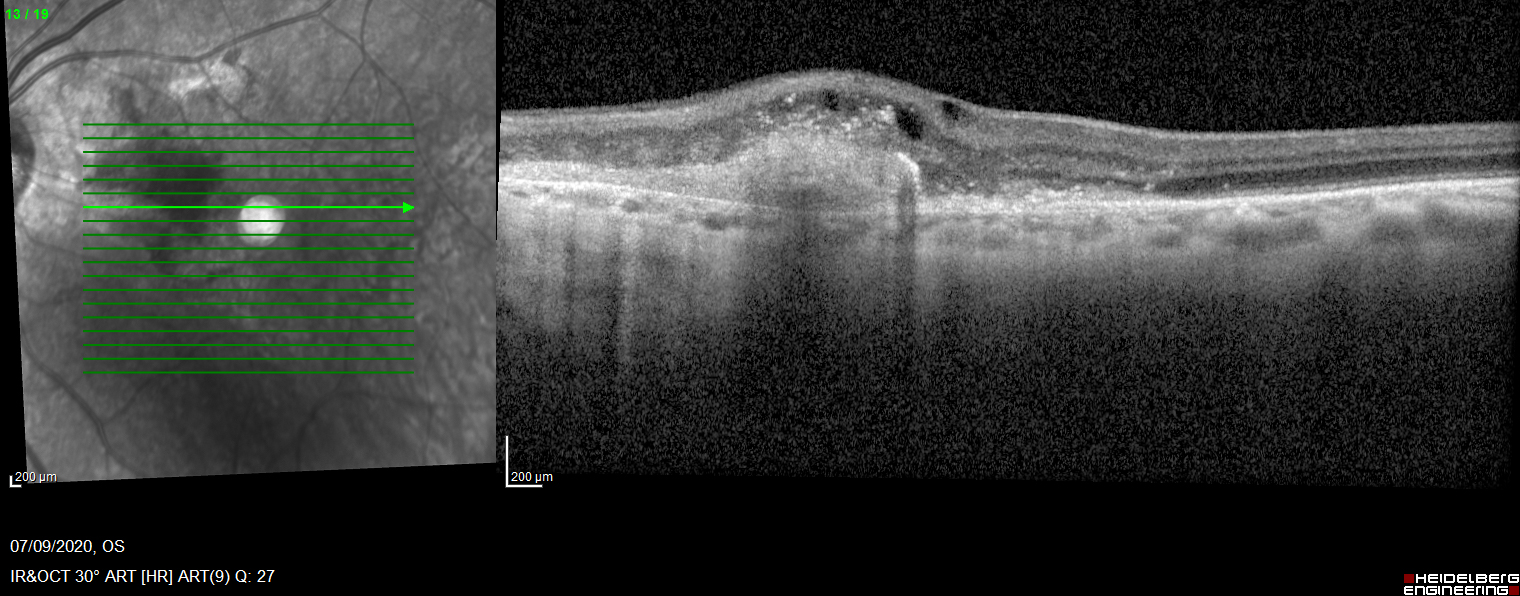by Dr. Vincenzo Petitti, Professor of Diseases of the Visual System at UniCamillus
Age-related macular degeneration is the leading cause of central vision loss in the developed countries. It generally appears after the age of 55 and its prevalence increases with age. Currently it affects 18-20% of the population over the age of 85. In the world there are about 30 million people affected, while in Italy the numbers speak of about 800,000 patients, with 80,000 new cases every year. Therefore, it is undoubtedly a pathology of the utmost importance for which it is important to recognize the first alarm bells such as fixed dark spots (scotomas) and image distortions (metamorphopsias). The main risk factors are age, female sex, hypertension, cardiovascular disease, cigarette smoke and a family history of maculopathy.
The means we have to recognize this pathology include an eye examination and a non-invasive diagnostic test, the OCT, which allows you to study the macular area in a few minutes. The therapeutic approach provides, given a wet and a dry form, the intravitreal injection of substances (called anti-VEGF) designed to block the formation of abnormal new vessels for the wet form, while for the dry form there are currently no pharmacological therapies but only behavioral changes such as diet and lifestyle. However, anti-VEGF drugs are not a permanent cure, since they only block the progression of the disease for a certain period. Therefore these patients require continuous eye examinations and repeated injections to keep the disease under control.
Vincenzo Petitti is Professor of Diseases of the Visual System in the UniCamillus Degree Course in Physiotherapy and teaches Eye Pathologies related to Posturology for the First Level Master in Clinical Posturology.
The purpose of the Master is to train professional figures in the field of posturology with a transversal and interdisciplinary educational offer. The lessons are delivered in e-learning mode with the possibility of accessing the platform 24 hours a day and using, at any time, all the teaching material made available by the teaching staff.

